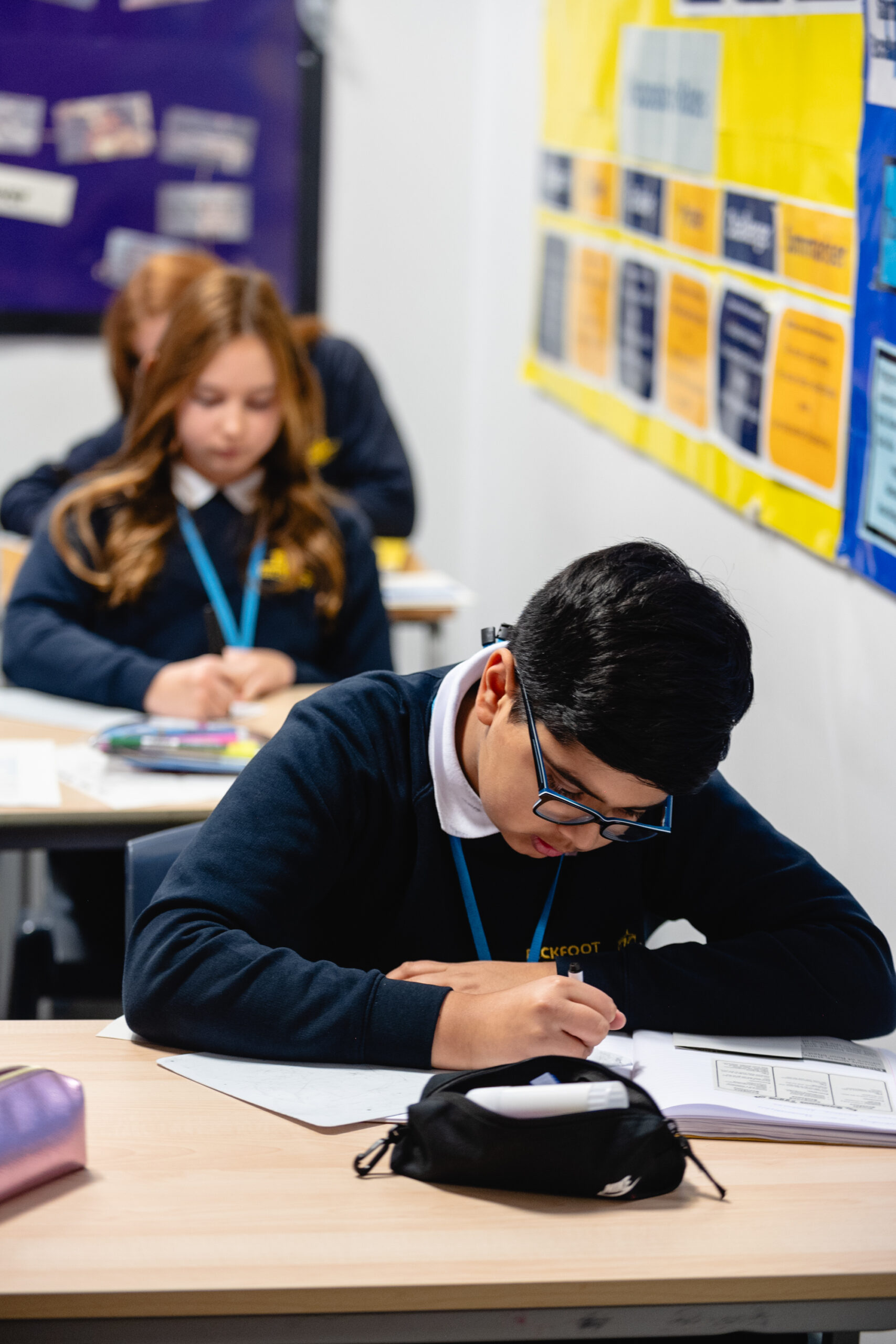English will foster independent, skillful communicators with a passion for reading and writing.

Reading, writing and oracy are fundamental skills for students to possess. At Beckfoot we teach students the origin and development of these skills, thereby enabling them to decode and recreate the world around them.
Students will study a variety of texts while they’re at Beckfoot, all from different time periods, genres and perspectives through both analytical and creative methods.
From exploring the works of Homer, Shakespeare and Dahl, they will develop their knowledge sequentially as they hone their analytical skills.
Enrichment
Studying English at Beckfoot encourages students to develop a love for what is on their doorstep; from the works of the Brontes to J.B. Priestley, students will recognise that they are pat of a rich literary heritage.
From being inspired by local writers, students will also work closely with local primary schools to help younger children develop their literacy skills. Students will also have the opportunity to take part in whole Beckfoot Trust debates to improve their oracy skills.
Assessment
In years 7, 8 and 9, internal assessments will take place throughout each year to monitor student progress and further inform teaching and learning.
At GCSE, students will study both English Language and Literature, will be assessed at the end of Year 11 through written exams.
KS4 Specification
Careers
English will provide students with fundamental literacy skills, and the agility to critically and creatively evaluate the written and spoken world in which they live. By producing confident writers, readers and speakers, learners will be prepared for future work and further education.
- Marketing
- Communications
- Public Relations
- Law
- Teaching
- Journalism
- Writing
Curriculum Overview
| Year | Cycle 1 | Cycle 2 | Cycle 3 |
|---|---|---|---|
| Year 7 | Telling the story: Students will understand how a story is constructed as they learn about stock characters, form and structure of stories over time: Iliad to Dahl. | Shakespeare – to laugh or cry? Students will learn to recognise the conventions of three types of Shakespearean plays (history, tragedy and comedy) as they develop their knowledge of the plot of several of his plays. | Sonnets: Students will learn about the origins of the sonnet form and learn to recognise, analyse and explain the form: Petrarch to the Romantics. |
| Year 8 | Travel Writing: Students will develop their understanding of the conventions of non-fictional travel writing and use their knowledge to create their own written piece. | War poetry: Students will learn about war poetry, exploring why soldiers chose poetry to express their experiences and feelings. | Ghosts and ghouls: Students will be introduced to Gothic conventions and be exposed to a range of Gothic texts. |
| Year 9 | Investigative journalism: Students will understand the role of a journalist and analyse different ways in which stories can be reported as they work to produce their own news article. | Dystopian fiction: Students will understand the origins of the utopian and dystopian forms of writing and apply dystopian conventions to their own story. | Flipping the form: Students will learn how to change one form of writing into another and apply different forms to change a newspaper. |
| Year 10 | Romeo and Juliet by William Shakespeare: Students will develop a confident overview of the plot, narrative devices, themes and characters in the play. | Language paper 2: Students will become familiar with the format of questions 1-5 on the exam paper and understand how to approach them. | Literature paper 2 – Power and Conflict: Students will understand the content and context of all 15 poems and learn to write basic comparisons of them. |
| Year 11 | Literature paper 2 – An Inspector Calls: Students will learn to answer a character or theme based essay on the text. | Literature paper 1 – Romeo and Juliet: Students will be able to answer questions on all the characters and all the themes within the novel. | Power and Conflict poetry: Students can write a full comparative essay on any named poem and one other from the anthology. |